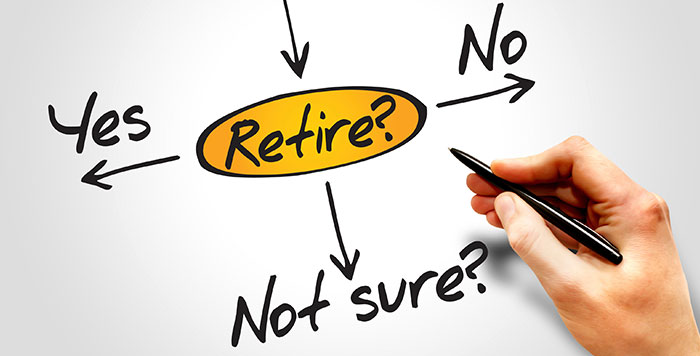According to prevailing stats, there are around 42 million workers currently active in the labor force who will turn 55 years old or above by the year 2026. At this rate, these “older” workers will outnumber the “younger” batch of workers aged between 25 and 54.
At present, this older group of workers represent the biggest portion of the labor force, accounting for about 25 percent. They also represent the fastest growth rate in the workforce as 2026 approaches.
Do you belong in the “older” faction of the labor force? If yes, have you made plans for your retirement?
When it comes to retirement, what are the questions pop into your mind? More often, people’s questions are generally about money; i.e., how much money would one need to be able to retire happy. But surprisingly, the hardest question relating to retirement isn’t directly about the moolah. So what is?
Retirement Planning Isn’t Just about Financial Security
Financial security is not an uncommon objective in retirement. Every one wants to spend the golden years having peace of mind when it comes to the finances. Is this one of your priorities?
So to achieve this goal, the ideal recourse is to set your retirement plan in motion by working on it backward. To start off, make your objectives very specific. Then determine what steps are necessary for you to reach it. Don’t forget to make provisions for faulty assumptions and obstacles along the way.
With a very concrete goal, you can gauge for yourself what needs to be done. It also helps you measure your progress toward your objectives.
But planning for your retirement isn’t just about money. Did you know many people consider this a subordinate priority next to this one? So what’s the hardest retirement question? It relates to age.
Age Is Not Just a Number
What is the ideal age to retire? It’s a seemingly simple question yet pregnant with many variables that a common person might not be able to give a straightforward answer.
For many workers, retirement age is not an exact number. Given today’s economy and financial recommendations, it can be vague as to when one may get out of the labor force and enjoy the golden years.
But when one speaks of retirement, it necessarily entails these questions:
- How much money has been saved up to enjoy retirement?
- Is there a retirement plan?
- When should one start claiming Social Security benefits?
- Will the savings, pension, and other benefits be sufficient for retirement?
According to forecasts, the average retirement age is 66. But with the prevailing economic conditions, this number continues to move further, making it a moving target for many workers. Experts believe the retirement age will go up higher further into the future.
The Bureau of Labor Statistics estimated that there will be over a hundred million Americans who will reach age 55 or older by 2026. Of this figure, about 29 million will be age 75 or above. The 65 and above age bracket is the fastest-growing segment in all age groups among workers between the period 2016 and 2026.
What’s Your Ideal Retirement Age?
Many people see approaching retirement age as a period of saving and investing as much as possible then seeing how far their finances will take them by the time they reach 60 or older.
While picking the exact age to retire may not be a realistic thought for many people, it’s important to get those thoughts together. Set those goals and work backward from them. Understand what steps are necessary to reach these objectives. Then you may discover that retirement age is nearer that what you initially projected.
